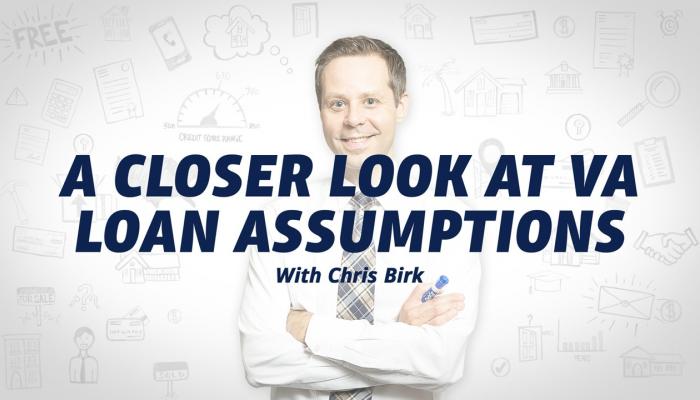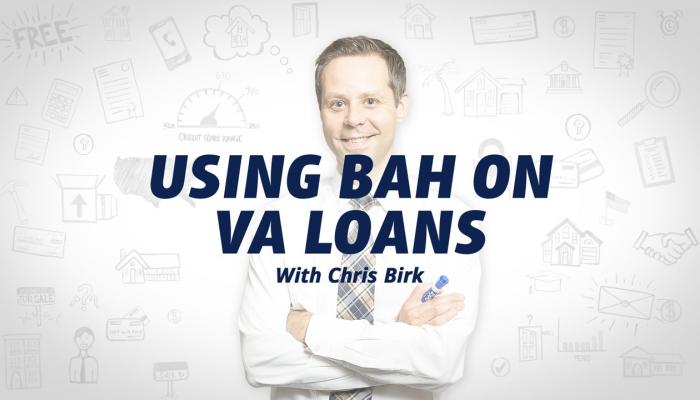A buyer's first mortgage involves a lot of big decisions. When sorting through VA, FHA, USDA and conventional loans, how can a buyer make the right choice?
Loan costs should definitely factor into the evaluation. Fortunately for eligible military buyers, it is possible for VA loans to be less expensive up-front and over the long haul than other loan options.
Knowing how VA loans work is the first step toward getting the home of your dreams, and our VA loan calculator could help you find out how much you could save. But are they cheaper than other loans?

No down payment reduces up-front costs.
The down payment is often the biggest up-front expense for home buyers. Most conventional lenders require a down payment of at least five and sometimes 20 percent. On a $200,000 home, that down payment could range between $10,000 and $40,000.
Enter the VA loan: one of the only mortgages that doesn’t require a down payment. Eligible buyers can choose to finance 100 percent of a home (within a VA lender’s guidelines), and bypass a substantial down payment.
Don’t mistake “no-down-payment” financing with “less expensive” financing. A no-down-payment loan isn’t “cheaper.” Buyers do end up paying more interest over the long run. But that trade-off can prove worthwhile for eager buyers without a large chunk of cash
» CALCULATE: Calculate your VA Loan savings
No PMI cuts long-term costs.
VA loans also let buyers sidestep PMI. PMI (private mortgage insurance) is typically required when borrowing more than 80 percent of a home’s value. The fee for PMI is tacked onto a monthly mortgage payment, and usually ranges between .5 and 1 percent of the total loan amount.
Since a portion of VA loans are backed by the federal government, VA lenders do not ask borrowers to buy PMI. It’s a handy perk that cash-strapped homeowners quickly come to appreciate.
Closing costs are low and can be paid by the seller.
The VA strictly regulates the type and amount of closing costs that can be paid by VA loan borrowers. That oversight keeps closing costs in line with, and sometimes below, conventional closing costs.
Another nice benefit of VA loan closing costs is that they can be paid by the seller. But remember: This concession must be hashed-out during buyer/seller negotiations.
Competitive interest rates keep payments low.
One of the biggest determinants of a loan’s interest rate is the amount of risk involved with the loan.
The government backing provided with each VA loan lessens a lender’s risk. Less risk gives lenders greater flexibility with interest rates. As a result, VA loan interest rates can often feature lower interest rates than conventional mortgages.
Don’t forget the VA Funding Fee.
VA loans do incur one unique cost: the VA Funding Fee. The VA Funding Fee offsets the VA’s administrative costs, and ranges in value from 1.25 to 3.3 percent of the total loan amount (veterans with a service-connected disability are sometimes exempt).
VA Funding Fee Rates
| Down Payment Made | First Time Use | Subsequent Use |
|---|---|---|
| none | 2.15% | 3.30% |
| 5% - 10% | 1.5% | 1.5% |
| 10% or more | 1.25% | 1.25% |
Numbers represent a percent of the total loan amount.
Keep in mind that the Funding Fee doesn’t have to be paid up-front. Military buyers can choose to roll the fee into the total loan amount.
At the end of the day…
Is a VA loan cheaper than other loan options? Maybe. Maybe not. Every buyer, seller, purchase and lender are different. It’s impossible to say that one loan program will ALWAYS be cheaper than another.
But with a plethora of low-cost benefits, VA loans definitely have a shot at being the cheapest way for eligible buyers to finance a home.
To find the best financing tool for you, talk to an experienced loan officer. Make sure your lender has experience with different lending programs (VA, FHA and conventional), and can provide a comprehensive assessment. Buyers can reach a Veterans United VA Loan Expert 24/7 by calling 855-870-8845.
Related Posts
-
 VA Loan Assumption: Breaking Down How VA Assumptions WorkAssuming another's VA loan is an intriguing benefit with VA loans. Here we take a look at what an assumption is, the process and who can assume a VA loan.
VA Loan Assumption: Breaking Down How VA Assumptions WorkAssuming another's VA loan is an intriguing benefit with VA loans. Here we take a look at what an assumption is, the process and who can assume a VA loan. -
 Using Basic Allowance for Housing (BAH) on VA LoansAn incredibly powerful benefit of the VA home loan is military members' ability to use their Basic Allowance for Housing (BAH) towards their mortgage payments. BAH rates depend on several different factors, so it's crucial to verify your amount with the DOD.
Using Basic Allowance for Housing (BAH) on VA LoansAn incredibly powerful benefit of the VA home loan is military members' ability to use their Basic Allowance for Housing (BAH) towards their mortgage payments. BAH rates depend on several different factors, so it's crucial to verify your amount with the DOD.


